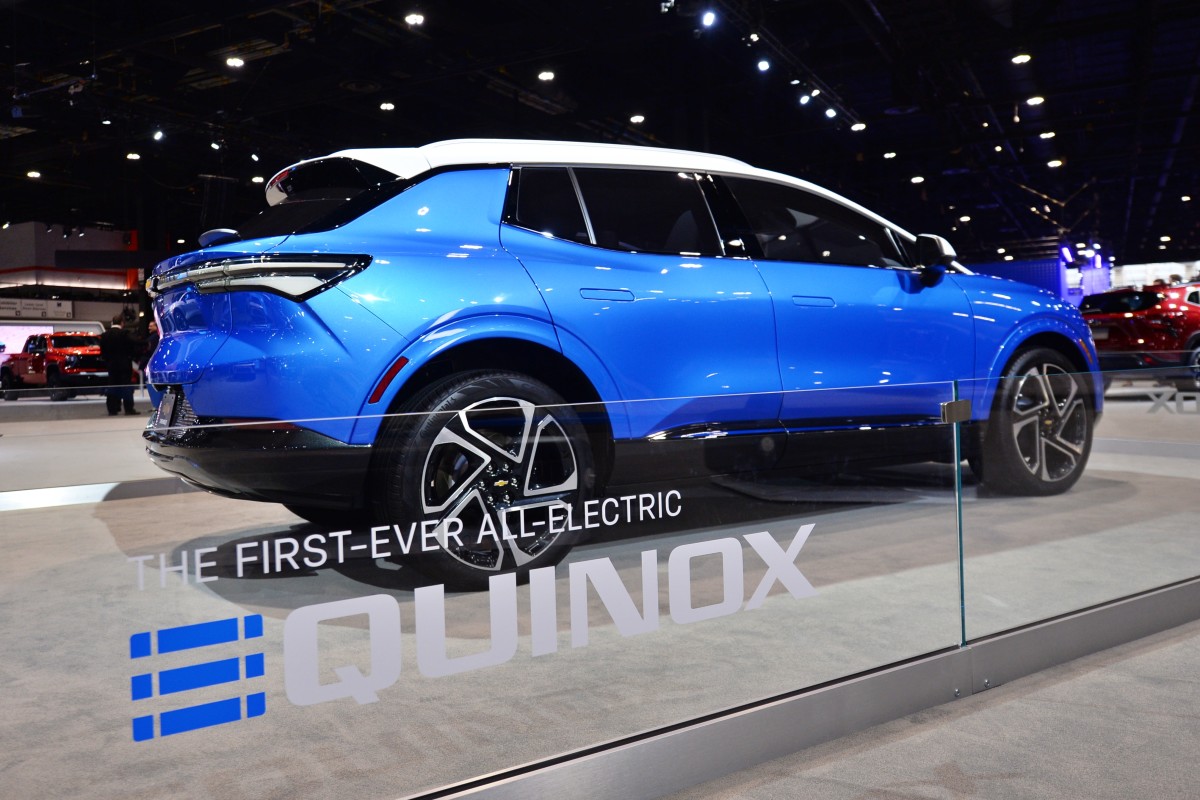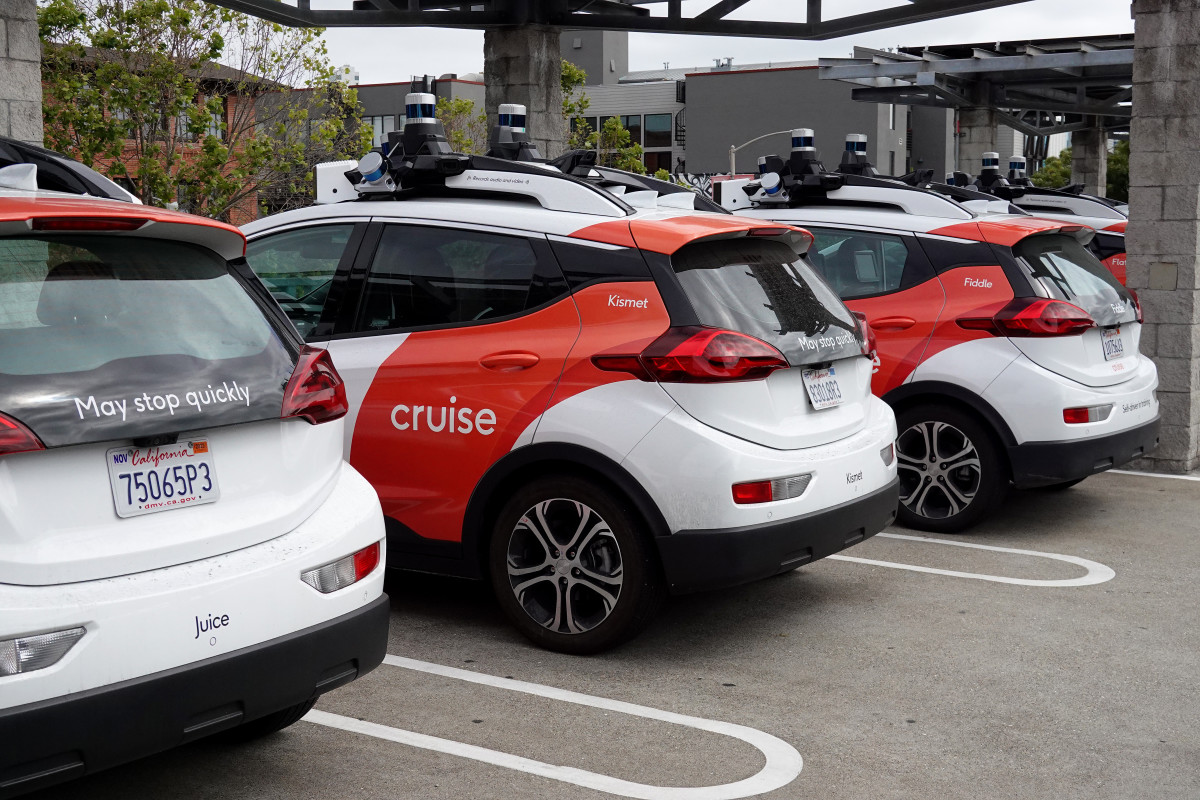
As battery-electric vehicles and plug-in hybrids take the automotive spotlight, the automotive industry is pages deep into a new chapter of technology and innovation reflected in new cars in showrooms across the United States.
Though many eyes are on specific companies like Tesla (TSLA) , Japanese auto giant Toyota (TM) , and promising EV startups like Rivian (RIVN) and Lucid (LCID) , one of Detroit's Big Three automotive powerhouses is often left out of the conversation—General Motors (GM) .
In a recent article for TheStreet Pro, veteran analyst Brad Ginesin noted that GM shares have been "stuck in neutral" for years due to factors that included "peak earnings, competition and an economic downturn that will dent profits," which saw little benefit for shareholders betting on the massive automaker's advancements in electric and autonomous vehicles.
Although Ginesin sees GM stock selling at a discount, he mentioned some key factors that might help the automaker realize its true value.

A dirty secret for market success
There's one phrase that gets investors giddy and excited while also triggering ire and criticism from figures like United Auto Workers President Shawn Fain: stock buybacks.
As much as it is a dirty tactic by the white-collar side of automakers, buybacks make all the difference when it comes to the number next to the ticker.
Ginesin noted that GM executives took a more "balanced approach," directing a larger amount of cash flow into stock buybacks, which has positively impacted the company's earnings.
"GM reported a stellar quarter in late July with [earnings per share] up 60%," Ginesin said. "The accretive buybacks have helped bolster EPS with outstanding shares reduced by 17%, from 1.37 billion to 1.12 billion in the past year."
Although Ginesin mentions that buybacks are not among GM's top priorities, he feels that if GM continues its business success and its stock price doesn't reflect it, "the percentage of shares they’re buying quarterly can remain the largest of any company in the S&P 500."
More Business of EVs:
- Waymo finds new way to bring chaos to quiet city streets
- Gavin Newsom's 'EV mandate' is under U.S. Supreme Court threat
- BMW's clever, new EV app is a privacy nightmare
An EV-heavy, but focused game plan for consumers
A key distinction that sets GM apart from Detroit rivals like Stellantis (STLA) and Ford (F) , is its relatively smoother rollout of electric vehicles than its contemporaries.
Ford has dramatically changed its EV-focused outlook very recently. In a move that will cost the company billions, the Blue Oval is focused more on hybrid models of its bread-and-butter offerings, while its EV strategy focuses on smaller vehicles.
Meanwhile, Stellantis is aggressively cutting the fat from its North American operations while dealers express doubts about the EVs they will tasked to sell to consumers.
Though GM laid off more than 1,000 workers at its software and services arm, it is still on the greener side of the grass when it comes to its product offering.
While Ginesin pointed out that "GM wasted vast amounts of capital creating buzz for their EVs before they were available," the effort is having an impact. The cars appeal to a wide array of buyers, with "54% of EV purchases" coming from first-time GM buyers, all while it avoids a Tesla-style nightmare with inventory.

The Autonomous Twist
According to Ginesin, GM-owned Robotaxi firm Cruise is "good news" for investors. He categorizes it as "a moonshot opportunity with little to no valuation," a description that can easily be given to Tesla and its latest autonomous vehicle and artificial intelligence endeavors that are expected to be revealed on October 10.
Compared to the small role of Cruise within GM, he says Tesla's market cap and stock price is dictated by "a whiff that [Tesla] may have robotaxis on the road in the next few years," also noting that the automaker's little robotaxi endeavor has outside support from companies like Walmart (WMT) and Honda (HMC) .
Related: Uber robotaxi push may be next step in sinister pattern
Recently, Cruise got another push from a major partner. On August 22, ridesharing giant Uber (UBER) announced what it calls a "multiyear strategic partnership" with Cruise to offer rides in its autonomous vehicles through the Uber ridesharing application.
In 2025, Uber users can ride in one of Cruise's Chevrolet Bolt autonomous vehicles for "qualifying rides," which can cast the widest net for potential customers for the firm.
“Cruise is on a mission to leverage driverless technology to create safer streets and redefine urban life," said Cruise CEO Marc Whitten. "We are excited to partner with Uber to bring the benefits of safe, reliable, autonomous driving to even more people, unlocking a new era of urban mobility."
Related: Veteran fund manager sees world of pain coming for stocks







